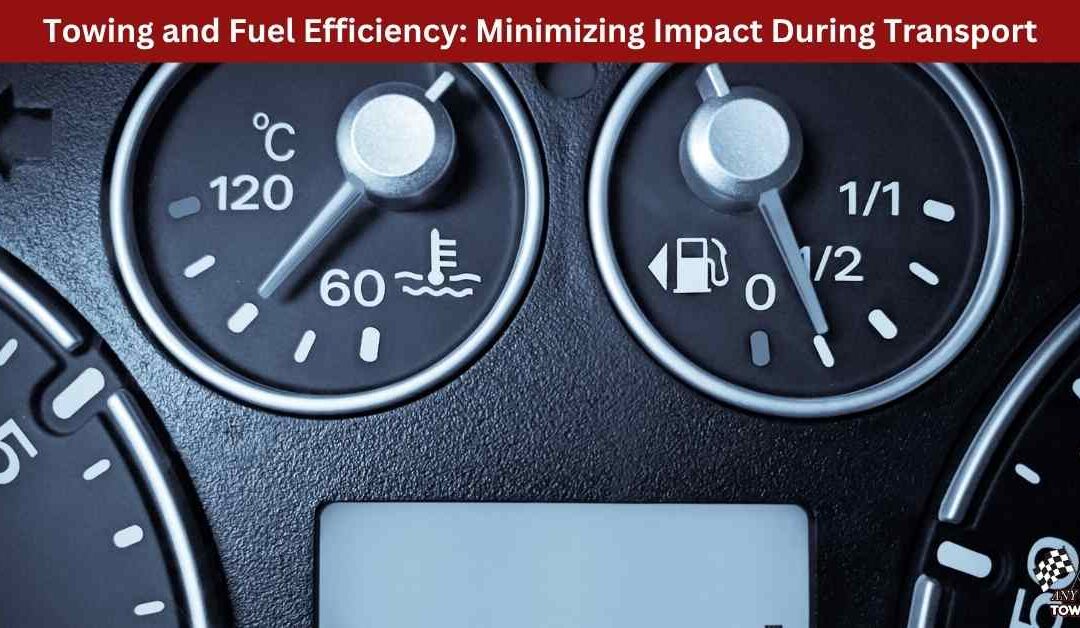When most people think about towing, the first thing that comes to mind is getting a broken-down car safely off the road. But there’s another piece of the puzzle that often gets overlooked—fuel efficiency. Whether you’re towing a car across town, hauling a boat to the coast, or transporting heavy machinery, fuel usage can creep up quickly. For tow truck companies, drivers, and even everyday motorists, understanding how towing affects fuel consumption can make a huge difference in both costs and environmental impact.
Why towing eats up more fuel
It’s no surprise that pulling extra weight requires more power, and more power means more fuel. Think of it like walking up a hill with a backpack—add a few books to the bag, and suddenly you’re sweating harder. Vehicles work the same way. When you’re towing, the engine has to push against added resistance, increased drag, and often heavier loads.
For example, a standard pickup truck that averages around 12–14 litres per 100km without a load can jump to 18 or even 20 litres per 100km when towing a medium-sized car. That’s a noticeable increase, especially on longer trips.
Factors that influence towing fuel efficiency
Not all towing jobs affect fuel the same way. A few key factors make a big difference:
- Weight of the load: Heavier vehicles or equipment require more energy to move.
- Aerodynamics: A car on a flatbed creates less drag than towing a boxy trailer.
- Driving style: Aggressive acceleration and sudden braking waste fuel fast.
- Terrain: Hills and uneven roads force the engine to work harder.
- Speed: Driving faster than 90 km/h increases wind resistance, which quickly eats into fuel savings.
Smart ways to minimize fuel use while towing
The good news is, there are plenty of ways to keep fuel efficiency in check—even when towing.
- Plan your route wisely
Avoid stop-start city traffic whenever possible. A smoother highway route usually leads to better fuel economy. Apps like Google Maps or Waze can help find less congested roads, especially during peak times. - Keep your vehicle well-maintained
Proper tire pressure, regular oil changes, and clean air filters go a long way. Underinflated tires, for instance, can increase rolling resistance, which means the engine burns more fuel to keep things moving. - Distribute weight correctly
Unevenly loaded trailers or flatbeds can cause drag and even affect stability. When weight is balanced, the tow vehicle doesn’t have to struggle as much, which saves fuel and improves safety. - Drive with a light foot
Smooth acceleration and gentle braking aren’t just safer—they’re fuel-friendly too. Think of it as coaxing your vehicle forward rather than forcing it. - Don’t overdo the speed
Many drivers assume that going faster gets the job done quicker. But the extra fuel burned at higher speeds can outweigh the few minutes saved. A steady, moderate pace usually pays off at the pump.
A real-world example
Not long ago, one of our drivers was called out to tow an SUV from Richmond to Geelong. Normally, that drive eats a fair bit of fuel, but by keeping to 90 km/h instead of pushing to 110 km/h, and by choosing a highway route with fewer stoplights, the truck ended up saving nearly 15% on fuel. Multiply that by dozens of jobs a week, and you’re looking at significant savings for both the company and the environment.
The bigger picture: fuel, costs, and the environment
Fuel efficiency in towing isn’t just about saving money (though that’s always nice). It also plays into reducing emissions and minimizing our environmental footprint. For a towing company, these small adjustments add up quickly. Over a year, fuel-conscious driving can save thousands of litres of fuel. For customers, it can mean more affordable service because operating costs stay under control.
Where we go from here
Towing and fuel efficiency might not sound exciting at first glance, but once you see the impact on costs, performance, and even the environment, it’s clear why it matters. A few smart choices—like planning routes, maintaining equipment, and adjusting driving habits—help keep fuel use in check while ensuring vehicles get where they need to be safely. It’s a win for drivers, customers, and the planet alike.
Now Any Car Towing is available in Lynbrook Victoria 3975.
Contact Us
Any Car Towing
10 Silvergum Pl, Cranbourne VIC 3977
0413 176 223


Recent Comments